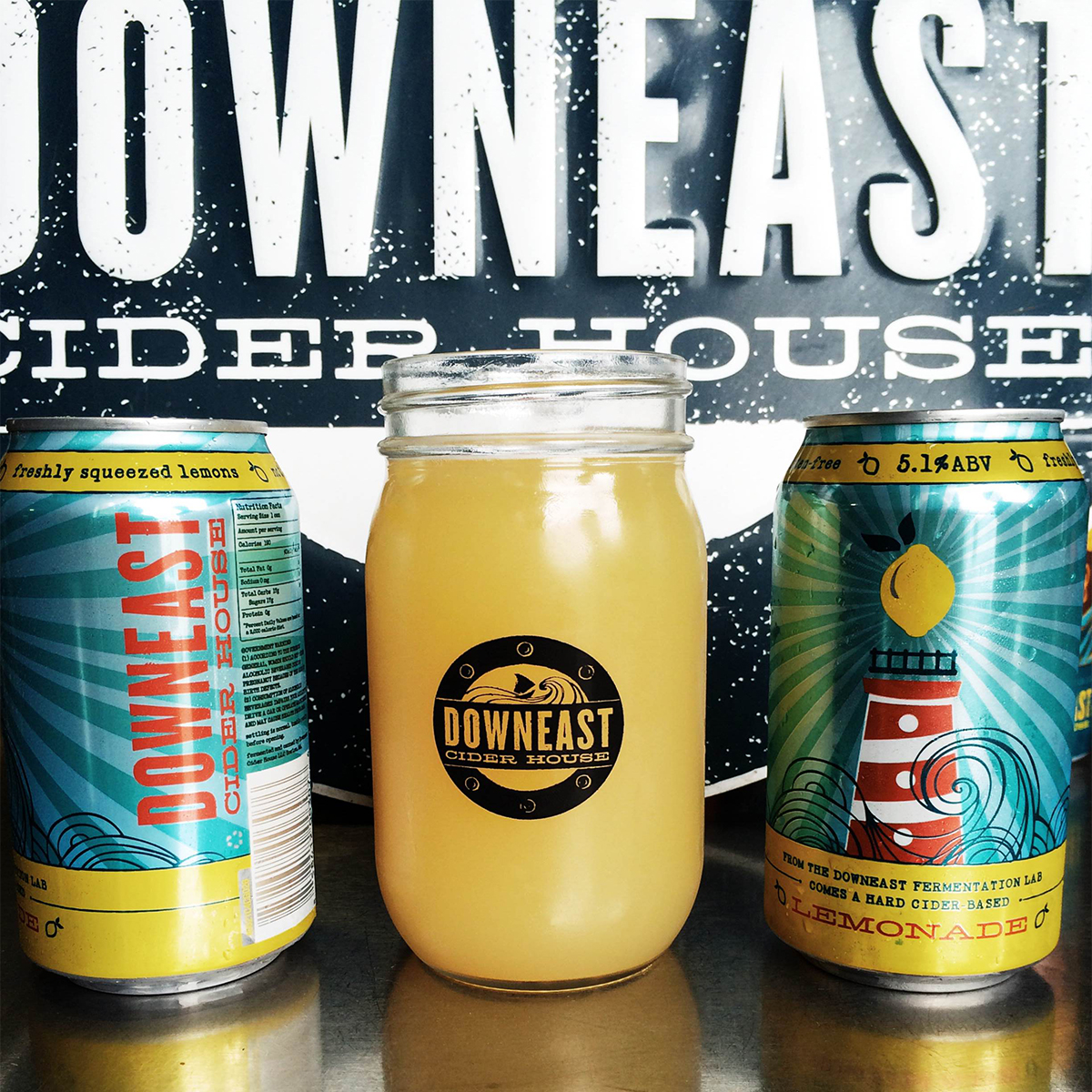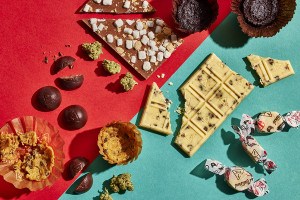Liquid Diet: Downeast Cider Hard Lemonade

Downeast Cider is releasing a hard lemonade in early June. Photo courtesy of Cambria Grace Photography
“If you ferment apples, it’s called hard cider. Fermented malt is beer. But would do you call fermented lemonade?” says Downeast Cider cofounder Ross Brockman. “People have always been afraid of the term ‘hard lemonade’ because of the precedent that’s been set by Smirnoff Ice and Mike’s Hard Lemonade. It’s just had negative associations forever because of flavored malt beverages that aren’t made with fermented fruit. Our biggest issue is whether or not people are willing to accept hard lemonade as a legitimate craft beverage.”
After three years of experimentation on its new “Lemonade,” Downeast Cider is finally ready to find out. Due to be released on draft on June 2 and in retail outlets on June 9, the hard lemonade combines a fermented base of unfiltered apple cider, water, cane sugar, and ale yeast with lemonade made from freshly squeezed lemons.
“You can ferment most sugary liquids, so the base for our lemonade is fresh, sweet cider—the same that we use for our original hard cider—fermented with our standard ale yeast. The cider is only there to help with fermentation; it doesn’t impart any flavor. To achieve that profile of real lemonade, we add in actual lemonade made from a classic combination: five to eight parts water to every one part of fresh lemon juice and sugar.”
Lemonade is a recipe Brockman and his business partner, Tyler Mosher, have been playing around with since Downeast’s inception in 2011. Working on a shoestring budget at their original facility in Waterville, Maine, the two eventually shelved the project (as well as others involving mango and pomegranate) to focus on their flagship cider. After moving into their new 9,000-square-foot Charlestown warehouse in February, the duo has been freed up to entertain some of those initial, more whimsical undertakings.
The hard lemonade experiment doesn’t come without its drawbacks though. Lemon prices are skyrocketing due to the worldwide shortage of limes and the subsequent substitution of other citrus at commercial food and juice corporations. But, the scenario is one Downeast is all too familiar with. When they launched their company, New England apple growers had their worst crop since 1945.
“Considering our product is 99.99 percent apple cider, our cost of goods was triple what it should have been,” Brockman says. “We got through that with very, very thin margins. In the same way, there’s nothing we can do. We’re not going to start using concentrates, so we’ll have to do the same thing for Lemonade.”
Brockman admits that the timing behind Downeast’s new product is partially inspired by the current wave of enthusiasm surrounding pre-packaged shandies. “There’s a lot of interest in this right now because of the excitement around Harpoon’s Big Squeeze and Narragansett’s collaboration with Del’s Lemonade. People have gotten over the negative opinions surrounding that category, so why not hard lemonade? Maybe those influences will rub off and allow us to brand this as a serious product, which it is.”


